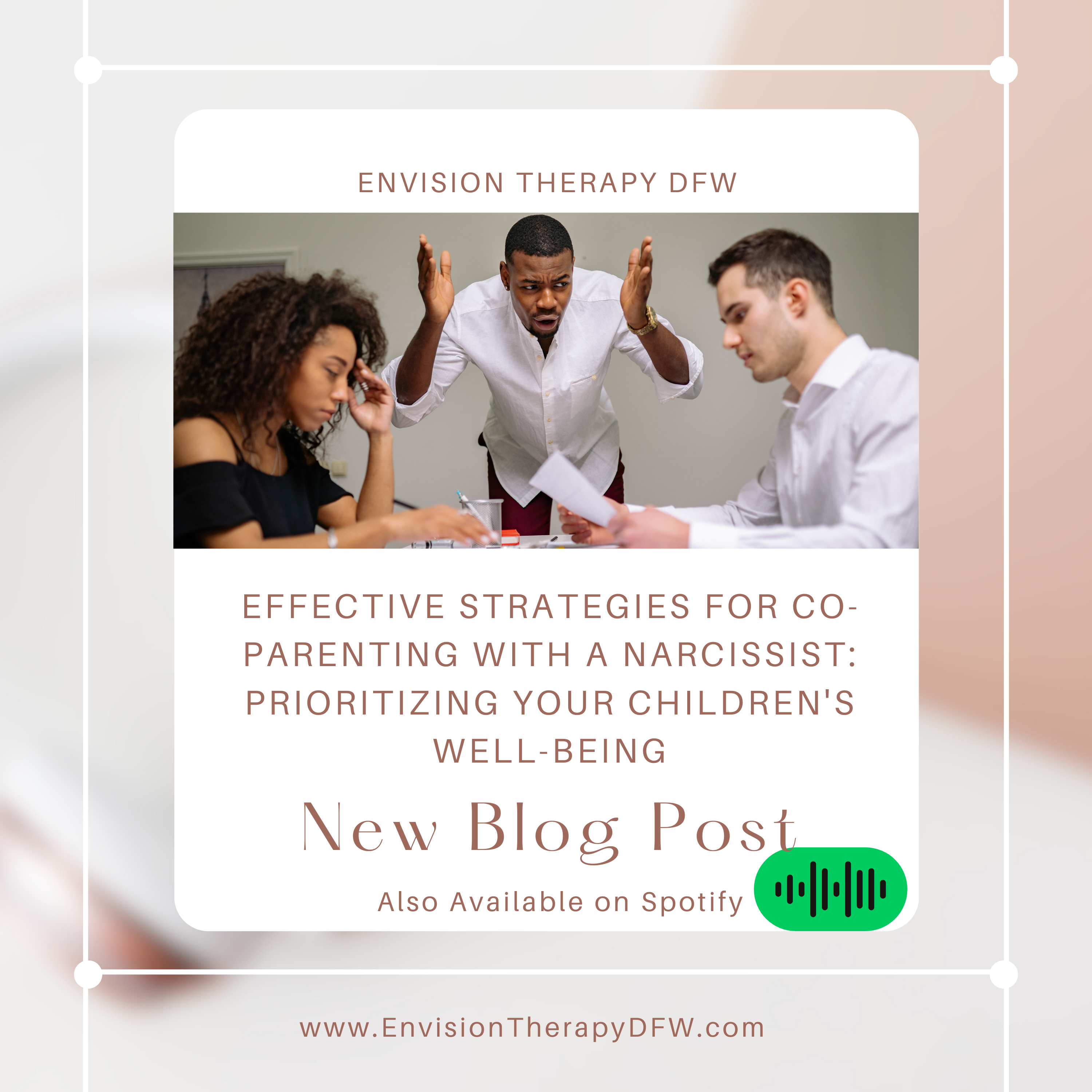Co-parenting with an antagonist or a narcissist can be an incredibly challenging experience, and filled with manipulation, power struggles, and emotional turmoil. Despite these difficulties, it’s essential to prioritize your children’s well-being and maintain your own mental health throughout the process. Here, we’ll explore effective strategies for navigating co-parenting or parallel parenting with a narcissistic ex-partner, empowering you to create a positive and stable environment for your children.
Understanding the Dynamics
Imagine this: you schedule a weekend visitation with your ex-partner, who is a narcissist. As the time approaches, they suddenly cancel without warning, leaving you and your child disappointed and frustrated. When you express your concerns, they dismiss your feelings and shift the blame onto you, claiming you’re being unreasonable.
This scenario illustrates how narcissists prioritize their own needs and desires, disregarding the impact on others, including their children. They may use manipulation tactics such as gaslighting, where they distort reality to make you doubt yourself or question your perceptions. For instance, they might deny promising to attend a school event for your child, leaving you feeling confused and invalidated.
Co-parenting with a narcissist involves navigating complex and often manipulative dynamics. Narcissistic individuals typically prioritize their own needs and desires above all else, including the well-being of their children. Their sense of entitlement and lack of empathy can lead to behaviors aimed at maintaining control and undermining your authority as a co-parent.
In a co-parenting relationship with a narcissist, you may encounter manipulation tactics such as gaslighting, where they distort reality to make you doubt yourself or question your perceptions. They may also use guilt-tripping, blame-shifting, or emotional blackmail to manipulate you into complying with their wishes or relinquishing your rights as a parent.
Understanding these dynamics is essential for developing effective strategies to protect yourself and your children while co-parenting with a narcissist. By recognizing their tactics and prioritizing your children’s well-being, you can navigate this challenging dynamic with greater clarity and resilience.
Setting Boundaries
When co-parenting with a narcissist, setting clear and firm boundaries is crucial for maintaining your sanity and protecting your children. Picture this scenario: you’re discussing a parenting decision with your ex-partner, who is a narcissist. Instead of engaging in a respectful conversation, they start belittling your suggestions and questioning your competence as a parent. In response, you calmly assert your boundary, stating, “When discussing parenting decisions, I expect respectful communication and a focus on our child’s best interests.”
In this example, using assertive “I” statements helps to communicate your needs without provoking defensiveness or escalating conflict. By clearly defining expectations regarding communication, visitation schedules, and decision-making processes, you establish a framework for co-parenting that prioritizes your children’s well-being and minimizes opportunities for manipulation or abuse.
Parallel Parenting
Parallel parenting can be an effective strategy for minimizing conflict and reducing direct interaction with a narcissistic co-parent. In parallel parenting, each parent takes responsibility for specific aspects of their child’s life without interference from the other. This approach allows you to prioritize your child’s well-being while minimizing opportunities for manipulation or conflict.
Come back tomorrow for a post all about parallel parenting!
Minimizing Communication
Limiting communication with a narcissistic co-parent can help reduce stress and emotional turmoil. Utilize tools such as email or text messaging to communicate essential information while maintaining a written record of interactions. Avoid engaging in confrontational or emotionally charged conversations, as these often escalate tensions and exacerbate conflict.
Come back Wednesday for a post all about minimizing communication!
Seeking Support
Navigating co-parenting with a narcissist can feel isolating and overwhelming. Reach out to friends, family members, or support groups who understand your situation and can offer guidance and encouragement. Consider seeking therapy or counseling to process your emotions and develop coping strategies for managing difficult situations.
Prioritizing Self-Care
Above all, prioritize self-care and prioritize your own well-being as you navigate co-parenting with a narcissist. Take time to engage in activities that bring you joy and relaxation, whether it’s exercise, hobbies, or spending time with loved ones. Practice mindfulness and self-compassion, recognizing that you’re doing the best you can in a challenging situation.
Work with Elizabeth to discover practical strategies for navigating co-parenting with a narcissist while prioritizing your children’s well-being and your own mental health. Subscribe below and join us as we explore effective techniques for setting boundaries, minimizing conflict, and prioritizing self-care in challenging co-parenting situations.
TLDR: Co-parenting with a narcissist can be challenging, but it’s possible to navigate with effective strategies. Prioritize your children’s well-being, set firm boundaries, minimize communication, seek support, and prioritize self-care to maintain your sanity.

